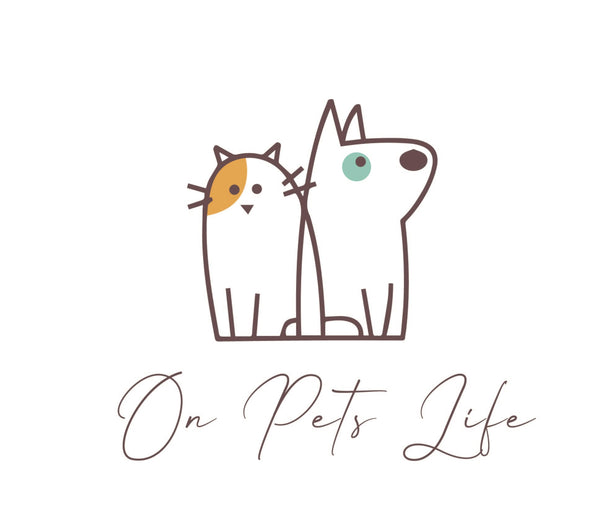Do you also habitually call yourself "mom" and "dad" to your dogs and cats? You're used to this situation, but have you ever wondered why?
So what we want to talk about this time is how the emotions we project on our fur kids make us understand ourselves better and better.
What does the way you treat fur kids reflect?
We call ourselves parents to our pets, which is actually projecting our feelings for our children onto the fur kid. In other words, the way we treat pets largely mirrors the parent-child relationship of our original family. The family of origin is a sociological concept that refers to the family in which each of us is born and raised, that is, the family we form with our parents before we get married.
A good parent-child relationship is the foundation of parent-child education. Only under a harmonious parent-child relationship will children respect their parents, respect their parents' opinions, and receive education.

"Family therapist" Virginia Satir proposed: A person is inextricably linked with his family of origin, and this connection will affect him throughout his life, it will lead to his lack of sense of security, perfectionism, too much anxiety, fear of establishing too close relationships with others, too strong self-protection awareness and other personality characteristics, and these characteristics will be deeply imprinted in the child's heart.
Therefore, many people's problems in adulthood are not caused by the environment in which they live in adulthood, but can be traced back to the influence they suffered in the family during childhood. The pattern of parenting that everyone learns at first also comes from the family of origin.
We call ourselves "dad" and "mom" to fur kids, which is subconsciously substituting ourselves into the role of parents and raising fur kids. In the process of interacting with them, we also unconsciously apply the parenting model of our family of origin, and if we can detect this, it can help us understand ourselves better.
4 Types of Parenting Models
Parenting patterns refer to a collection of parenting attitudes, behaviors, and nonverbal expressions that reflect the nature of parent-child interactions. The famous American child psychologists McCoby and Martin E.P. Seligman summarized the four parenting styles of parenting styles.
Autocratic
This model of parent-child relationship is characterized by high demands and low responses. Parents are often very demanding of their children, but are not as active and efficient in responding to their children's needs.
For example, you often give orders to your pets, discipline them strictly, and even take "high-pressure rule", but you rarely understand the thoughts and motivations behind your pet's behavior, and you just expect the pet to obey your instructions obediently.
This kind of parenting mode may be an important aspect of establishing a sense of security for loyal dogs, but it is a kind of torture for cats who love freedom and are wild and unruly. An authoritarian parent is likely to make your fur kids obey you out of fear. Over time, he will become cowardly, timid, afraid to express his true thoughts, and even stay away from you as much as possible.
Negligent
This model of parent-child relationship is characterized by low demands and low responses. Parents rarely discipline their children or take measures, and at the same time, they pay little attention to their children's needs and rarely respond in a timely manner.
This parenting model, in getting along with pets, is manifested as indifference and complete neglect of pets. Neither makes any requests nor responds to any requests from pets. The pet will find that whether he is courting or showing aggressive behavior, he will not get any response, and over time, he will no longer express and no longer seek to connect with you.
Such a model seems to be just "inaction", but it is the most damaging of the four parenting models. Total neglect is far more harmful than strong control, and it represents a total denial of the relationship and an emotional disconnect. In the long run, it will make fur kids sensitive and suspicious, insecure, or directly show no interest in anything and are very indifferent.

Permissive
This model of parent-child relationship is characterized by low demands and high responses. That is, parents are often neglectful of their children's discipline, but respond to their children's needs in a timely and exaggerated manner. This is what we usually call coddling.
In this kind of parenting mode, the owner regards the pet as a sweetheart, and has no requirements for him and never restricts any behavior of the pet. As long as the pet is happy, the owner will satisfy him infinitely.
This kind of overly ardent love that regards pets as the center of their own world is not necessarily a good thing for pets. For example, when pets have some aggressive behaviors, if the owner does not curb them, it may intensify and cause some irreversible consequences.
Democratic
This model of parent-child relationship is characterized by high demands and high responses. Love and rules are equally important. The "democratic" parenting model is the parenting model that we advocate for intelligent parents, and it is also an important factor in building an ideal family environment.
This kind of parenting model embodies the importance of not only the needs of pets, but also the communication of feelings, appropriately displaying boundaries, establishing rules, and giving pets appropriate constraints.
This is the most respected one of the four parenting models, but it also requires us, as masters, to be patient and energetic with fur kids.
What kind of parenting style do you have for your pet?
Learn about yourself and change yourself from parenting patterns
Since our relationship with pets largely mirrors the parent-child relationship, we can try to change ourselves by changing our parenting model.
Democratic parenting model
If your family of origin is the most ideal democratic parenting model, then it is very simple, as long as you carry on everything you have learned from your family of origin to all aspects of your life, you will be able to handle interpersonal relationships with ease and establish good intimacy , become the ideal self.
Authoritarian parenting model
If your family of origin is an authoritarian parenting model, then you are likely to have a low degree of trust in your parents. Under the control of high pressure, there will be two possibilities.
The first is the maximum rebound, which is what we commonly call rebellion. The "rebellion" here does not necessarily erupt in adolescence, but also in adulthood. When you feel that you are capable enough to resist, you will develop a rebellious tendency to demonstrate your independence and maturity to your parents who are always suppressing you.
The second situation is that the rebellion has not come, you agree with the autocracy of your parents, and you are accustomed to obedience. When they have no ability to be independent, they will obey their parents; after entering the society, they will be accustomed to obeying authority and rarely express their thoughts and opinions. This is not necessarily bad, because "obeying authority" is also a part of socialization. It's just that when you realize the influence of your family of origin on you, you will be able to better understand your own past, present, and future.
Neglecting parenting model
If your family of origin is a neglectful parenting model, then your relationship with your parents is likely to be more alienated, with little in-depth spiritual communication. At the same time, because the expressions since childhood were not seen by the parents, nor were they responded in time, over time, self-protection was formed, which is what we call emotional isolation.
Emotional isolation refers to the fact that in the family system, children try various strategies to resist integration in order to seek self-protection. For example, leave the family to live elsewhere, and always maintain a spatial distance from the family. Or don’t communicate with your parents, build a mental fortress and tell yourself that you don’t need your parents’ attention and emotional response.
Emotional isolation can generalize and make you feel like no one else can trust you, and you shouldn’t express your true feelings to anyone or make any demands in order to avoid getting hurt.
Neglecting parenting patterns will make you unable to establish intimacy with others in interpersonal relationships, although you can have normal social interactions.
If you are aware of this problem, you can at least try to make some changes, such as trying to express some shallow feelings. If you can get a positive response, you can break the vicious circle. Gradually stretch out soft tentacles from under the shell of isolation, seeking emotional communication and resonance.

Permissive parenting model
In this mode, you are likely to be always confident and feel good about yourself, but at the same time it is difficult to develop the ability to "delay gratification".
Delayed gratification refers to a willingness to give up immediate gratification for a more valuable long-term outcome, and self-control demonstrated during the waiting period. It is a necessary condition for individuals to complete various tasks, coordinate interpersonal relationships, and successfully adapt to society.
But because your parents have always regarded you as the center of the family since childhood, always meeting your needs unconditionally, you rarely have the patience to wait for longer-term goals. Once a desire is created, it must be satisfied immediately. This is likely to hinder your long-term development and make you encounter some bottlenecks in your career. At the same time, because of the doting of your parents, you are often dismissive of rules and boundaries, feeling that your own feelings are the first, and you don't have to abide by the order and rules if it is not necessary. And this will also hinder the development of your interpersonal relationships and cause others to have some unnecessary misunderstandings about you.
If you find that you have these characteristics, then you can try and set the goal as far as possible. If you can have enough patience to complete it, give yourself some rewards. If you can't complete it, give yourself some punishment.
In terms of interpersonal communication, we should try our best to be considerate of the feelings of others, abide by the rules, pay attention to order, and then meet our own needs within a certain range.
All of these parenting patterns are also indirectly reflected in how we get along with fur kids, so you'll be more likely to spot these traits in yourself. And when you have discovered these qualities, you can take the first step of change, seeing and accepting.
Fur kids are like our mirrors, reflecting our upbringing model, our original family, and of course, our infinite possibilities to change ourselves. May you understand yourself, accept yourself, change yourself, and let the fur kids witness you to become a better version of yourself when you get along with them~

